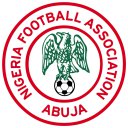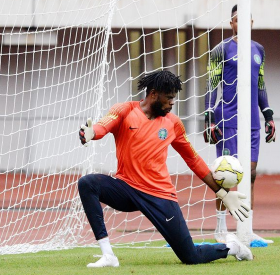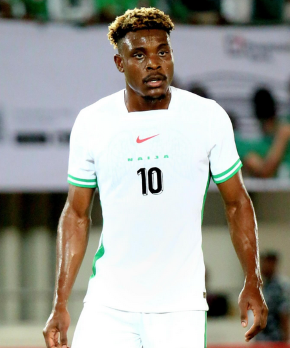
Where Is NFF's Money?
When former president of Nigeria Football Federation (NFF), Alhaji Sani Lulu Abdullahi decided on Tuesday, April 3, 2012 to become daring and open up at a crowded media conference in Abuja, the Kogi State-born soccer administrator might have been oblivious to the fact that he was opening a new, controversial chapter in the story about ‘missing money’ in The Glasshouse.<br /><br />In what becomes an alarming continuum of the never ending saga about misappropriated funds in the NFF, Lulu used the occasion to unleash venom on his many accusers and declared emphatically that he had actually left 2.8 billion naira behind in the secretariat of Nigerian football as at the time he and his board were sacked in 2010.<br /><br />Lulu stated that the money includes $8m from FIFA as 2010 World Cup participation fee and $5.5m FIFA support for Nigeria’s hosting of the 2009 U-17 World Cup.<br /><br />The erstwhile NFF top shot revealed further that Nigeria earned $9m from FIFA for qualifying for the 2010 World Cup in South Africa and $1m was advanced for preparation for the tournament, while a balance of $8m was not remitted to the NFF account before his impeachment.<br /><br />He said out of the 1.25 billion naira released by the federal government for the Super Eagles’ 2010 World Cup participation, only N900m was remitted to NFF’s account by the National Sports Commission, while the remaining N350m was withheld in the NSC.<br /><br />Lul added that, at the time of his impeachment, N326m and $540, 000 were left in various accounts of the NFF as residues from the N900m released by the NSC.<br /><br />On the $5.5m sponsorship fund for the 2009 FIFA U-17 World Cup, Lulu said the money remitted by FIFA through NFF to the Local Organising Committee (LOC) was lodged in an account with First Bank, Abuja but stated that no amount was withdrawn from it during his tenure as NFF president and chairman of the LOC.<br /><br />“I am aware that FIFA has an annual grant of $250, 000 to associations to facilitate national development programmes. My executive committee approved that annual total remittance of N18.5m of N500, 000 to each state and the FCT for grassroots developmental programmes.<br /><br />“I am not speculating. What I stated here are facts and the statistics are there for anybody to verify. Anyone with objection should come out with relevant facts instead of misleading the public with wrong information,” he said.<br /><br />Indeed, it would be recalled that the impeachment of Lulu’s board came at a time when many Nigerians were critical of the role played by the former Abuja FA boss and his henchmen – Chief Amanze Uchegbulam, Chief Taiwo Ogunjobi and Honorable Bolaji Ojo-Oba – in managing affairs and finances of the Football House, and the quartet ended up in the clutches of operatives of EFCC almost immediately after.<br /><br />Operatives of the EFCC had on July 7, 2010, arrested the four on accusations of misappropriating $125, 000 (N18.7 million) with poor hotel bookings in South Africa during the World Cup, losing $250,000.00 on wrong booking of an airline for the trip, spending $400,000 on a friendly against Colombia and the disappearance of $236,000.00 from the NFF vault in 2009.<br /><br />The allegations included pocketing $5million marketing revenue from FIFA, spending N96million on the purchase of two luxury buses for the Super Eagles, using N34million to conduct elections for the monitoring committee, unaccounted $1.2 million World Cup grant and sharing N185 million with state chairmen in an attempt to stop their impeachment.<br /><br />With so much aspersions rolling towards Lulu et al, especially an accusation from Senator Heneken Lokpobiri that the erstwhile board mismanaged 2.16 billion naira from 2006 to 2010, the embattled football technocrat reckoned coming out in the public to open up would be the remedy to all maladies, but his audacious revelations of April 3 inevitably drew a rapid-fire counter-allegation from NFF technical committee chairman, Barrister Chris Green.<br /><br />Green was joined by NSC director-general, Chief (Dr) Patrick Ekeji who declared: “What I don’t know is how he got the N1.2bn and the missing N350m he is talking about. The documents are there to show that we got N900m approval and that was what the NFF got.”<br /><br />On his part, NFF first vice president, Chief Mike Umeh denied knowledge of the money Lulu claimed he left in the coffers, while chief media officer of the federation, Demola Olajire refrained from making any statement over a matter that is still in court.<br /><br />However, despite attempts by officials of the NFF to launder their image, Indeed, some wordsmiths have become lucid in recent time, with coinages that include NFF House of Horror and other such damaging appellations for the football secretariat in Abuja, especially in the face of the myriad of recent upheavals rocking the round leather game in the country.<br /><br />Even before December’s AGA in ‘The Crocodile City’, another epochal moment for the round leather game in Africa's most populous country came on Friday, October 28, 2011, as officials of the NFF gathered in the capital, Abuja for a crucial decision on the way forward for the national team, Super Eagles.<br /><br />Although the NFF board eventually came out with a decision to send Samson Yebowei Siasia packing from his position as head coach, many a Nigerian football lover reasoned that the evils bedeviling The Game of The Century in the country went well beyond the foibles and apparent vindictiveness of a single infantile soccer tactician, but many believe the nation is up against a spiritual attack.<br /><br />The NFF’s high-profile confab on the last Friday of October was also meant to bring out a new line of direction for the Super Falcons, Flying Eagles and Golden Eaglets, as egg heads of the game further licked wounds of three weekends of dire straits for the nation on all fronts.<br /><br />It all began October 8, 2011, when the senior national team failed to get a precious lone goal victory to edge ahead of Guinea into the finals of the 2012 Africa Cup of Nations, or even win 2-1 and finish as one of the best runners-up and still book a ticket to Gabon/Equatorial Guinea.<br /><br />The following weekend, two of the clubs in continental action, Enyimba International of Aba and Sunshine Stars of Akure picked up disastrous results in the CAF Champions League and Confederations Cup respectively, while the female squad, Falcons lost on the next weekend to Cameroun via penalties and failed to qualify for the women's soccer event of the London 2012 Olympics.<br /><br />The chain of sad results left many a Nigerian fuming, but several others resorted to the spiritual angle and concluded as a consolation that the country was cursed, such that fans began calling for supplications to the Almighty for forgiveness.<br /><br />However, a declaration by Syli Nationale head of communications, Ndlaye Traore would only go to suggest that Nigeria's problems were self-inflicted and that view has been toed by a plethora of erudite stakeholders in the mother of all sporting events in Africa's most populous nation.<br /><br />For sure, Traore led the way right after his team pulled off the unexpected 2-2 draw at Abuja National Stadium, as he declared matter of factly: "It is a shame that Nigeria can no longer produce the likes of Kanu, Okocha, Amokachi and other good players.<br /><br />"I think the current set of players are finished. They are no longer the Super Eagles they used to be and I feel so sorry for the fans,” he reasoned.<br /><br />What a pathetic declaration and scorecard for Nigerian football that appeared to be, but many experts read between the lines and concluded that it had taken a foreigner to open the truth about the vicissitudes that have beset Nigerian football and views in that direction were shared by ex-players, journalists, top coaches and administrators.<br /><br />Leading the way in making submissions for ex-players of the game was 'the mathematical one', Chief Patrick Segun Odegbami, who reasoned that Nigeria's days in the dark woods of soccer began long ago, but admitted that it has never been as bad as the present setback.<br /><br />"Nigerian football has been going through a dark period. The domestic game has lost direction and focus. Its image is at the lowest ebb. There is no deliberate football development programme and strategy in the present structure of Nigerian football," said the 1980 Nations Cup winner, who was recently appointed chairman of a committee aimed at reviving the values of youth sports in the country.<br /><br />Joining 'Uncle Sege' in adducing lack of focus as the biggest bane of the game in the country were the trio of ex-goalkeeper, Peter Rufai, former striker, Jonathan Akpoborie and erstwhile defender and former coach of the senior national side, Augustine Eguavoen.<br /><br />"The problem is not just Samson Siasia. Even if you bring in a foreign coach, which may be the right thing to do, he is destined to fail, because the background, from what I have seen, is not just good enough.<br /><br />“There are some things we need to do first, before we can even be looking for success," declared Akpoborie, who starred in his hey day for top German clubs like Stuttgart and Wolfsburg.<br /><br />'Jonnie' was joined on the same wavelength by 'Dodo Mayana' (Peter Rufai), as the ex-number one in goal admitted that he has also made mistakes of errant conclusions in the past about the actual causes of Nigeria's foibles on the pitch and concluded that he is now twice as wise.<br /><br />"It is painful that Nigeria did not qualify for the Nations Cup, but that does not mean that the problem with our football will be totally solved. It has been there for long.<br /><br />“Until I stopped playing and went back to school to know more about the technical aspect of football, I then realised the reasons why our national teams are not doing well," said the one fondly called The Rock during his days as Nigeria's reliable safest pair of hands.<br /><br /><b>Sam O'Femi Fasetire</b><br />






Comments 0
Leave a Comment
No comments yet. Be the first to comment!